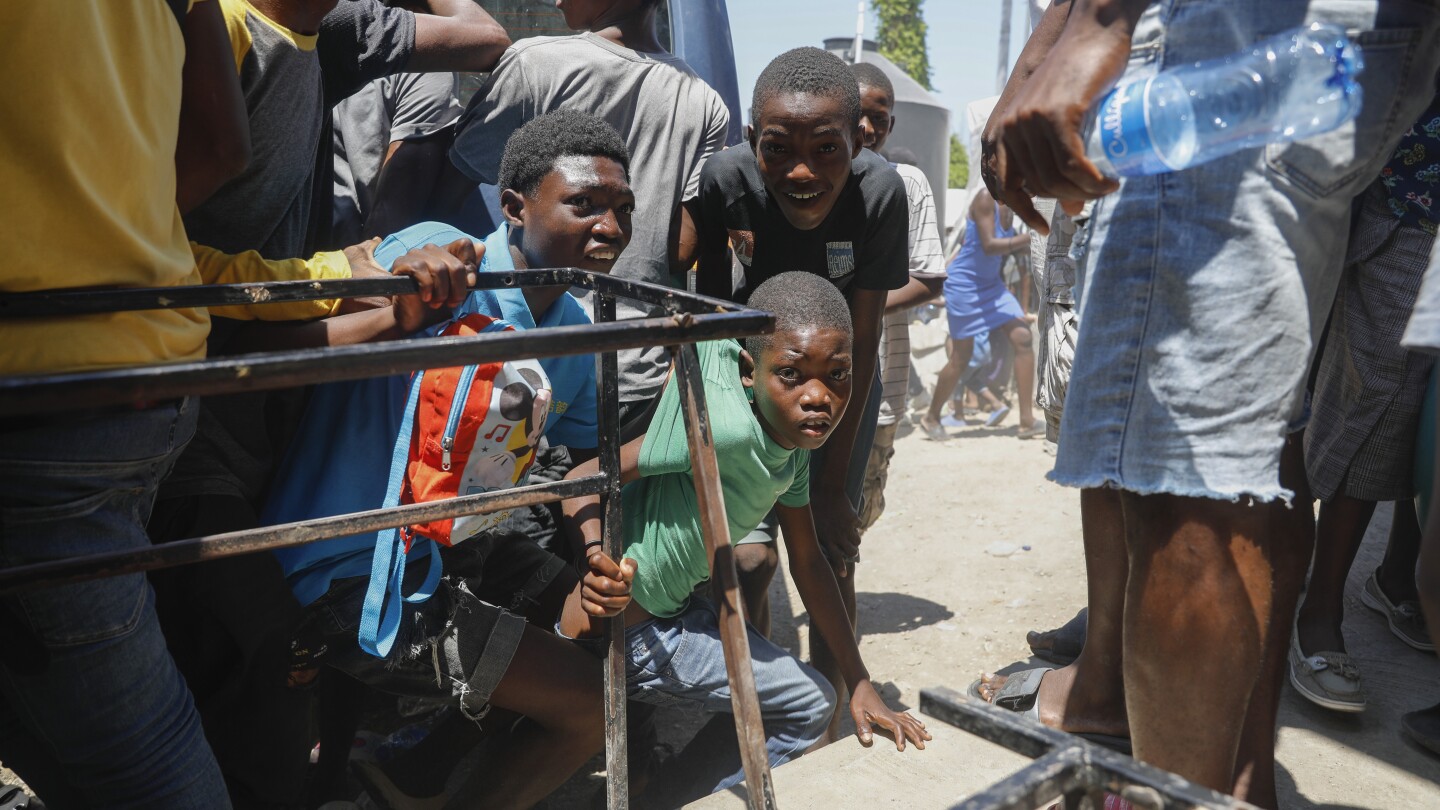GEORGETOWN, Guyana (AP) — Fresh turmoil involving a transitional presidential council that will be responsible for choosing Haiti’s new leader triggered a flurry of meetings with Caribbean leaders and officials from the U.S., Canada and France, officials said Monday.
The council has yet to be sworn in given concerns over the security of its members, among other things, a regional official who was not authorized to talk to the media told The Associated Press on condition of anonymity. The official is based in Guyana, which serves as headquarters for the regional trade bloc known as Caricom that is helping create the transitional council.
The delay in establishing the council comes as gangs continue to launch attacks across Haiti’s capital. Since Feb. 29, gunmen have burned police stations, opened fire on the main international airport that remains closed and stormed the country’s two biggest prisons, releasing more than 4,000 inmates.
Scores of people have been killed, and more than 33,000 people have fled the capital of Port-au-Prince as a result of the attacks.
On Sunday, the newest person chosen to represent the EDE/RED — one of several Haitian political parties and groups with a seat on the nine-member council — stepped down, forcing the council to scramble to replace her. Dominique Dupuy, a UNESCO ambassador, said in a video statement that she resigned in part because she became the target of political attacks and death threats.
In a statement posted Monday on X, formerly Twitter, the Montana Accord, a group of civil society leaders that also has a seat on the council, said it supported Dupuy and her family “at a time when she is being persecuted and threatened.”
“Society must remain vigilant about all political maneuvers based on fear and terror,” it said. “It’s time for us to stop the violence.”
Dupuy was quickly replaced, bringing the council back up to its full nine members, seven of which have voting powers, but they have yet to be sworn in.
It wasn’t immediately clear when the council would be formally announced, with another meeting scheduled Monday between its members and officials with Caricom.
Officials are hoping rampant gang violence will subside once the council selects a new leader for Haiti and appoints a council of ministers. Prime Minister Ariel Henry has said he would resign when the council is created.
While gang violence has somewhat subsided in recent days, gunmen set fire to a large, open-air garage in downtown Port-au-Prince on Sunday.
“A lot of people have lost everything,” attorney Joseph James said. “We couldn’t save anything.”
On Monday morning, mechanic Elidor Samuel rummaged through the scorched earth in hopes of finding some belongings that might be salvageable.
“All my tools have been burnt,” he said. “What am I going to do now?
Romain Le Cour, with Global Initiative Against Transnational Organized Crime, said in an analysis posted Monday that “rather than all-out war, the gangs seem to be pursuing a strategy of maximum pressure, consisting of attacks interspersed with lulls.”
He said that research by the Swiss-based civil society organization suggests the strategy may not be a decision taken solely by gang leaders, but possibly the result of relationships “that still bind them to their political bosses, who could be setting fluid red lines without renouncing the use of violence for political ends.”
Le Cour joined others concerned about the delay in finding new leadership for Haiti.
“The inability to make the presidential transitional council operational bears witness to the conflicts running through the Haitian political arena, while each passing day consolidates the power of guns and of politico-criminal brokers,” he said.
___
Associated Press journalists Pierre-Richard Luxama in Port-au-Prince, Haiti and Dánica Coto in San Juan, Puerto Rico contributed.

